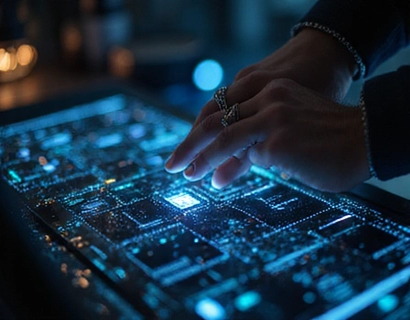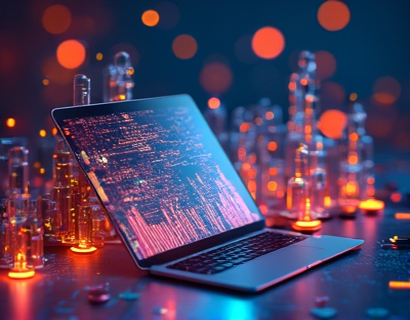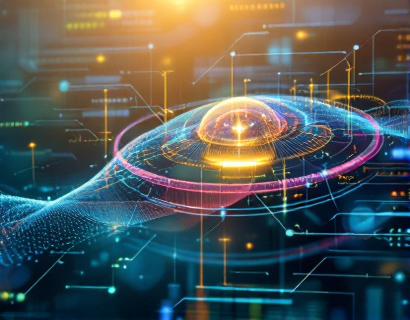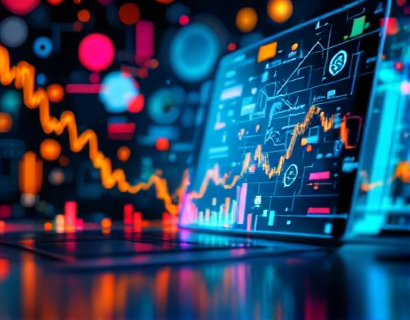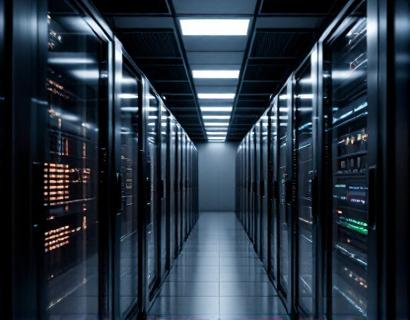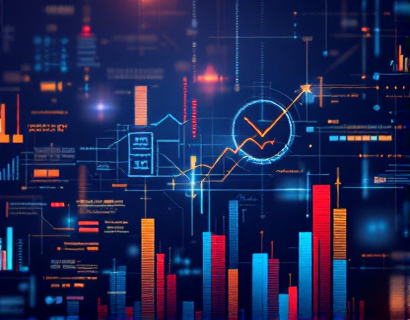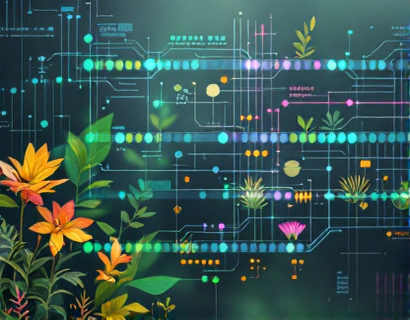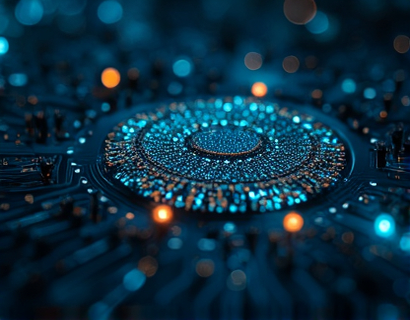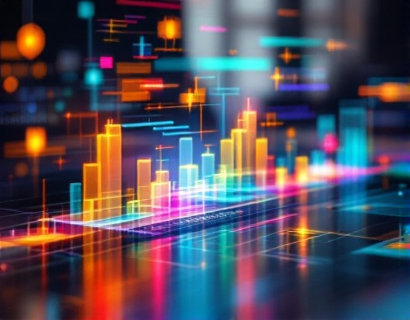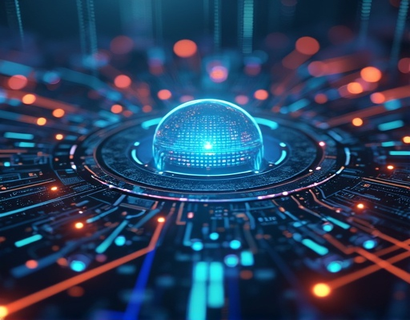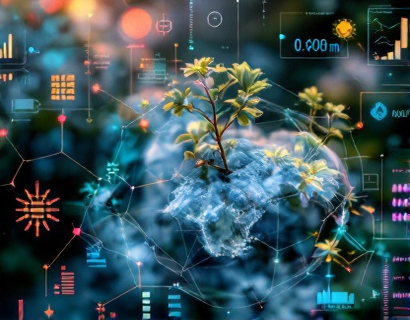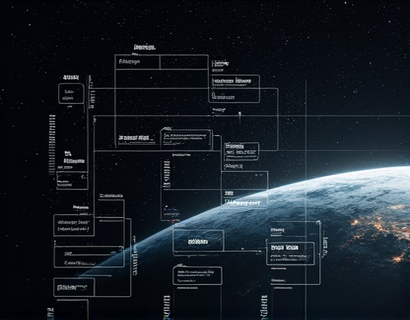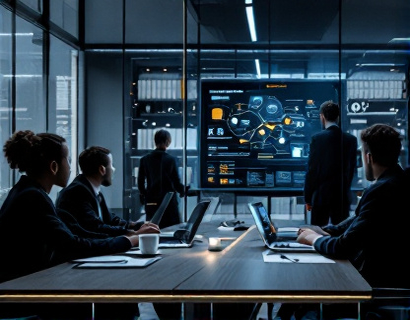Revolutionizing Digital Experiences: The Synergy of AI and Crypto
The intersection of artificial intelligence and cryptocurrency is paving the way for a new era of digital experiences. This fusion is not just about combining two advanced technologies but about creating a seamless and intelligent environment where users can interact with digital assets and services in unprecedented ways. The potential for innovation is vast, offering tech enthusiasts and innovators a glimpse into a future where connected technologies are not only powerful but also intuitive and user-friendly.
Understanding the Basics
To fully appreciate the impact of AI and crypto integration, it's essential to understand the fundamental concepts of both technologies. Artificial intelligence, or AI, refers to the simulation of human intelligence processes by machines, particularly computer systems. These processes include learning, reasoning, and self-correction. AI technologies such as machine learning, natural language processing, and computer vision are transforming various industries by automating tasks, providing insights, and enhancing user experiences.
Cryptocurrency, on the other hand, is a digital or virtual currency that uses cryptography for security. It operates on a decentralized network, typically a blockchain, which ensures transparency, security, and immutability. Bitcoin, launched in 2009, was the first and most well-known cryptocurrency, but since then, thousands of alternative coins (altcoins) and tokens have emerged, each with unique features and use cases.
The Emergence of AI in Crypto
The integration of AI into the crypto space has been a natural progression. Early applications focused on automating trading strategies, risk management, and market analysis. AI algorithms can process vast amounts of data, identify patterns, and make predictions with a level of speed and accuracy that surpasses human capabilities. This has led to the development of smart trading bots and automated investment platforms that leverage AI to optimize performance and minimize human error.
Beyond trading, AI is being used to enhance the security of blockchain networks. Machine learning models can detect anomalies and potential threats, helping to prevent fraud and cyberattacks. Additionally, AI-driven chatbots and virtual assistants are improving customer support in crypto exchanges and financial services, providing users with real-time assistance and personalized recommendations.
Enhancing User Experiences
The true power of AI and crypto integration lies in its ability to revolutionize user experiences. One of the most significant benefits is the creation of intuitive and personalized digital environments. AI algorithms can analyze user behavior, preferences, and historical data to tailor experiences that are uniquely suited to each individual. For instance, a crypto wallet app powered by AI can learn a user's transaction patterns and suggest optimal times for buying or selling cryptocurrencies based on market trends.
Personalization extends beyond transaction advice. AI can enhance the overall user interface by adapting to user interactions, making the app more responsive and user-friendly. For example, natural language processing (NLP) enables users to interact with crypto applications using voice commands or natural language queries, reducing the learning curve and making the technology more accessible to a broader audience.
Decentralized Applications and AI
Decentralized applications (dApps) are at the forefront of the crypto revolution, and AI is playing a crucial role in their development and functionality. dApps are applications that run on decentralized platforms, such as blockchain, and are not controlled by any single entity. AI can enhance dApps by providing intelligent contract management, automated governance, and enhanced user interactions.
Smart contracts, which are self-executing contracts with the terms directly written into code, can be optimized using AI. AI can analyze the conditions and outcomes of smart contracts, ensuring they function as intended and identifying potential vulnerabilities. This not only increases the reliability of dApps but also builds trust among users who are often wary of the security and transparency of blockchain technologies.
AI-driven governance models can also improve the decision-making processes within decentralized communities. By analyzing user feedback, voting patterns, and other relevant data, AI can propose and refine governance proposals, ensuring that the community's needs are met efficiently and democratically.
Cross-Chain Interoperability
One of the major challenges in the crypto ecosystem is the lack of interoperability between different blockchain networks. AI can help bridge this gap by developing intelligent protocols that enable seamless communication and asset transfer across various chains. This interoperability is crucial for creating a unified and efficient crypto ecosystem where users can interact with multiple platforms without the hassle of cross-chain transactions.
AI algorithms can analyze the technical specifications and protocols of different blockchains, identifying commonalities and differences. Based on this analysis, AI can generate optimized solutions for cross-chain interactions, such as atomic swaps and bridge protocols. These solutions not only enhance user convenience but also foster innovation by allowing developers to build more complex and integrated applications.
Security and Privacy Enhancements
Security and privacy are paramount in the crypto world, and AI is providing robust tools to address these concerns. AI-powered security systems can continuously monitor blockchain networks for suspicious activities, detecting and mitigating threats in real-time. Machine learning models can adapt to new types of attacks, ensuring that the system remains secure even as threats evolve.
Privacy is another critical aspect, and AI can help enhance it through advanced encryption techniques and zero-knowledge proofs. These technologies allow users to verify transactions and identities without revealing sensitive information. AI can optimize these processes, making them more efficient and user-friendly while maintaining the highest standards of privacy.
Future Prospects
The future of AI and crypto integration is promising, with numerous potential applications on the horizon. One exciting area is the development of AI-driven decentralized finance (DeFi) platforms. These platforms can offer more sophisticated financial services, such as lending, borrowing, and yield farming, with enhanced security and user control. AI can optimize these services by analyzing market conditions, user behavior, and risk factors, providing personalized financial solutions.
Another frontier is the integration of AI with non-fungible tokens (NFTs) and digital art. AI-generated art and unique digital assets can be securely stored and traded on blockchain platforms, creating new opportunities for artists and collectors. AI can also enhance the authenticity and provenance of digital assets, ensuring that buyers can trust the origin and history of the items they purchase.
Furthermore, the combination of AI and crypto can drive advancements in the Internet of Things (IoT). Smart devices can leverage AI to process and analyze data from various sensors, while blockchain ensures secure and decentralized data storage and sharing. This synergy can lead to more intelligent and autonomous systems, from smart homes to industrial IoT applications.
Conclusion
The convergence of AI and crypto is not just a technological trend but a transformative force that is reshaping the digital landscape. By leveraging the strengths of both technologies, we can create more intelligent, secure, and user-friendly applications that enhance the overall digital experience. As the ecosystem continues to evolve, the potential for innovation remains vast, offering endless opportunities for tech enthusiasts and innovators to explore and contribute to this exciting field.












